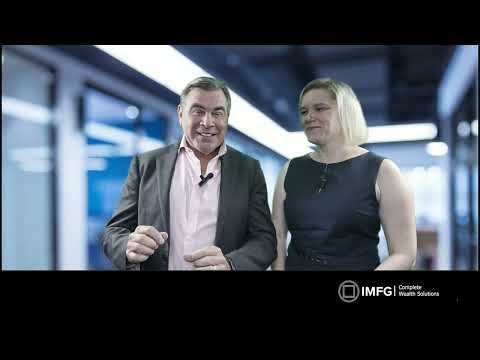Why owning less could give you more.
Money can buy you happiness.
It is a common saying. We naturally assume that the more money you have, the happier you will be. After all, having more money gives you freedom - the freedom to have more options and the flexibility of choice that you don’t have without money.
But having money doesn’t always deliver freedom. With money often comes responsibilities - both financial and personal. We make decisions based on having more money – a fancier car, a larger house and investment in material objects we believe will make us happier. But according to Dr Thomas Gilovich, a professor of psychology at Cornell University in the United States, one of the enemies of happiness is adaption. Dr Gilovich says, “We buy things to make us happy, and we succeed. But only for a while. New things are exciting to us at first, but then we adapt to them.”
Dr Gilovich has been studying money and happiness for over 20 years, and he concludes that you will get more happiness from spending money on experiences rather than objects. So instead of buying the latest iPhone or buying a new car, he says that you’ll be happier spending your money on travelling (when you can), learning new skills or doing outdoor activities.
Experiences become part of who you are; objects do not.
One of the key findings from research into money and happiness find that money does buy happiness, but only to a certain point.
This research aligns with the Easterlin Paradox, a finding in happiness economics formulated by Richard Easterlin, a professor of economics at the University of Pennsylvania in 1974. While the paradox has been discussed at length since the ’70s with various differing opinions as to its validity, the paradox states that “at a point in time happiness varies directly with income both among and within nations, but over time happiness does not trend upward as income continues to grow”.
Dr Gilovich’s more recent research looks at how adaption affects happiness and measures how people felt about significant material and experiential purchases over time. His studies found that peoples satisfaction with their material purchases went down, but their satisfaction with experiences they spend money on went up.
Interestingly, the fact that a material object is always present works against it and makes it easier to adapt to. But experiences, over time, become an ingrained part of your identity. And because an experience is not ever-present, the memory or skill obtained grows over time and is often enhanced when compared to other experiences.
How often do we look back and reflect on holidays and value those memories? In particular, when we think about past holidays, in the context of not travelling due to the Covid-19 pandemic.
What does observing the world’s billionaires tell us about happiness?
Elon Musk has been quoted as one of the world's wealthiest men, saying, “Possessions kind of weigh you down”. You might be surprised to know that Musk recently sold all seven of his homes and now lives in a tiny home worth US$50,000 near his SpaceX headquarters in Texas.
Jeff Bezos, the richest man in the world, recently travelled to the edge of space with his Blue Origin spacecraft taking his younger brother and two passengers with him. He aims to open space travel to the masses but described his short journey into space as “the best day ever”. An experience he will surely value more as time goes on.
Sir Richard Branson has the same objective as Bezos and travelled into space only a short time before on the 11th of July.
It speaks volumes for the value of experiences when billionaires, for whom money is no object, choose to invest their time and money into these.
How does this research relate to your own financial decisions?
Given that most of us aren’t billionaires, it might be an opportunity to look at material investments under a different lens.
For example, you might be considering an investment in a holiday home. While you may feel excited about having your own “place in paradise”, consider what that will achieve from an experience perspective. Will your family get bored going to the same place year after year? Are you better off renting a holiday house every year in different locations than committing to an area that may or may not achieve strong capital growth?
It might be your dream to own a sports car. But once purchased, will you adapt to owning that car and will your happiness diminish? According to the research, it will. You may be better off hiring one and savouring the experience of driving it and many other cars. You are likely to be happier and more financially better off.
While your perception might be those material possessions will make you happy, the research shows that this may not be the case.
Let’s just hope we can all take a holiday soon, which I’m sure will bring a smile to everyone’s face.
General Advice Warning
Any advice or information in this publication is of a general nature only and has not taken into account your personal objectives, financial situation and needs. Because of that, before acting on the advice, you should consider its appropriateness to you, having regard to your personal objectives, financial situation and needs. Before making a decision to acquire a financial product, you should obtain and read the Product Disclosure Statement (PDS) relating to that product, it is important for you to consider these matters and to seek appropriate advice. Past performance is not a reliable guide to future returns. The information in this document reflects our understanding of existing legislation, proposed legislation, rulings etc as at the date of issue. In some cases, the information has been provided to us by third parties. While it is believed the information is accurate and reliable, this is not guaranteed in any way. Opinions constitute our judgement at the time of issue and are subject to change. Neither we nor our employees give any warranty of accuracy, nor accept any responsibility for errors or omissions in this document. Identity McIntyre Pty Limited and Specialist Advice Pty Limited are Authorised Representative(s) of IMFG Pty Limited Limited ABN 18646084666, AFSL number 527657, an Australian Financial Services Licensee, Registered office at Level 8, 171 Clarence Street, Sydney NSW 2000.




